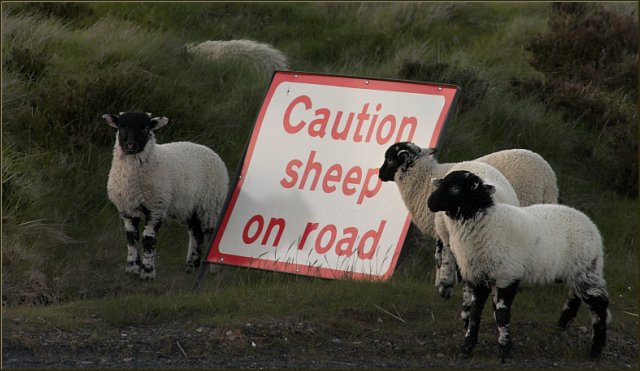You are probably familiar with the concept of herding / herd mentality. It’s when people follow and copy what others are doing instead of making their own decisions. I’m sure you see it a lot around you. You do it too. In a different way, called Self Herding.
Here’s a simple example of herding —
Imagine if you’re out to eat and see a couple of people queueing up outside a food joint. “This must be a good place”, you think to yourself and join them in the line. Another person walking by sees three people queueing up outside the joint and thinks “This must be a great place”, and joins the line. More and more people keep joining this way.
It’s very common in the world of investing where people are heavily influenced by market trends, often leading to huge bubbles or devastating crashes.
The evolutionary explanation for herding is probably related to information access. By aggregating in groups, one could easily benefit from the knowledge that other group members had gained. (For example, the location of key resources)
If you’re reading this, you are probably smart enough to think for yourself and avoid groupthink. And yet, all of us regularly fall prey to herding behavior in a slightly different way, which Dan Ariely refers to as Self Herding.

Self Herding is our tendency to follow the same decisions we have made in the past.
Most of the time, we make decisions based on our feelings or circumstances at that point and later justify them with logic. Also, a lot of our decisions are arbitrary. And the next time we are in a similar situation, we refer to our actions in the past for subconscious guidance. We “line up” behind our initial experience and herd ourselves.
That’s how preferences and habits develop. It’s more efficient for our brain to repeat previous decisions. And as time passes, we become set in our ways.
This not only goes for our actions but also our beliefs. Once we believe something is good or bad based on our previous behavior and experience, we tend to reinforce that belief by repeating (or avoiding) that behavior.
The opinion which we entertain of our own character depends entirely on our judgments concerning our past conduct. It is so disagreeable to think ill of ourselves, that we often purposely turn away our view from those circumstances which might render that judgment unfavorable.
— Adam Smith
Come to think of it, so many of our unalterable past decisions were likely affected by passing emotions. And consequently, so many of our current and future decisions are influenced by feelings we don’t even remember.
Self-herding is dangerous because it can be a slippery slope. It is almost harmless to try a cigarette once. But that’s how people go down the slippery slope of becoming an addict. (Over two-thirds of people who try one cigarette become, at least temporarily, daily smokers)
The more we invest (money, effort, time) in an idea or habit, the harder it gets to change our ways. Often, we end up disregarding alternatives that might be better. We become averse to new experiences and new perspectives.
Our first decisions resonate over a long sequence of decisions. They might seem inconsequential at that point, but our first decisions lay down the neural groundwork that bias future decisions.
Lives we have crafted so carefully are largely just a product of arbitrary coherence. We made arbitrary decisions at some point in the past — and have built our lives on them ever since, assuming that the original decisions were wise.
— Dan Ariely, Predictably Irrational
The idea of self-herding is similar to that of commitment/consistency bias. We have an instinctual desire to stay consistent with our prior actions and beliefs. And also with our self-image.
No one likes being a hypocrite. Once we have adopted a label (ex: “I’m lazy”), our behavior tends to become consistent with that label. So be careful about the labels you adapt. They can become self-fulfilling prophecies. And hey, you’re free to adopt whatever label you want. It’s an easy way to change your behavior and align it with the person you want to be.
Anyway, here’s the big takeaway: Train yourself to question your behaviors and habits.
How did it begin? Does it still serve you? A lot of our decisions have slow feedback loops, and at times we don’t realize the consequences of our actions until it’s too late. Maybe it was the right decision at that point. But the circumstances that led to the decision might have changed. Especially in today’s world where things change very fast.
The first decision is crucial. Give it an appropriate amount of attention and thought. And question everything.
Thank you for reading. Most of the content on this website has emerged from conversations with readers like you. Every Sunday, I send out an email dissecting some aspects of the human mind.
If you can take out a few minutes every week, I’ll help you develop a strong understanding of how your mind works. So that you can have more control over your thoughts, behavior, and life.
You can sign-up below. Or you can sign-up after reading my story and the core idea behind this website: We Should Be Getting More Out of Our Lives (would recommend)